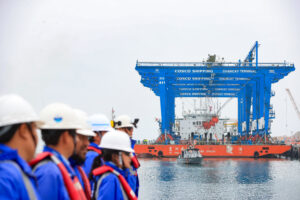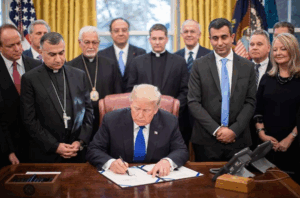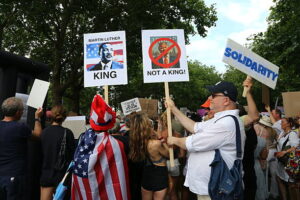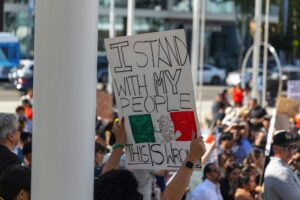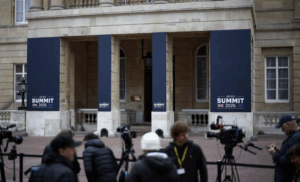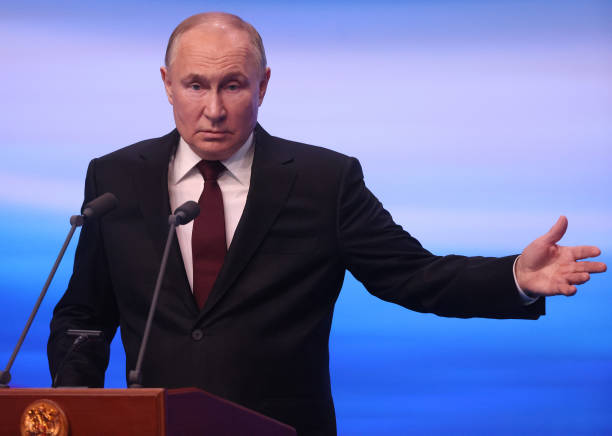On the last 17th of March 2024, Vladimir Putin won the presidential election in Russia, securing his power at the head of the country. Even though this is how he himself presents it, can we really say that Vladimir Putin won the Russian presidential election? Indeed, Vladimir Putin describes the results of the election as a landslide victory: his place at the head of the country is protected once again. But has it even been in danger?
The illusion of a free election
Although Vladimir Putin did not run an election campaign, he still meticulously prepared Russia for victory. During the months preceding the elections, he carefully sidelined the political opposition and eliminated every serious candidate in Russia. His main opponent was Mikhaïl Khodorkovski, who called the occidental societies to not recognise the legitimacy of the election. Because of his clear opposition to Vladimir Putin’s government, he was forbidden to take part in the election. Therefore, the candidates to the presidential election were only four, including the actual president. The three “allowed” candidates, Leonid Sloutski, Nikolaï Kharitonov and Vladislav Davankov did not represent a serious threat to Vladimir Putin. Their role was purely figurative. They shared Vladimir Putin’s ideas, in particular concerning the war in Ukraine.
Why then, organize a whole process such as a presidential election? It seems that Vladimir Putin knows the importance of maintaining the illusion of a democratic electoral process in his country. By claiming that an election was organised, he claims that his victory is based on the will of the population. It is crucial for him to maintain the illusion of a democratic election, so his legitimacy will not be questioned, especially by other countries. However, many irregularities regarding the vote are suspected by the political opposition of Russia, several ONGs and some occidental countries. Besides, through this election, Vladimir Putin wanted to demonstrate how much Russia was united behind him. The fact that he was reelected with 87,28% of the votes shows that he has real support in Russia. Still, questions are raised regarding how free the ballot is.
For a deeper analysis of Vladimir Putin’s press control in Russia check this article: https://www.csactu.fr/russie-limpossible-liberte-de-la-presse/
A victory prepared since 2020
Even though the Russian Constitution does not allow a candidate to do a third successive mandate as president, Vladimir Putin overcame this legal issue in 2021 with a reformation of the Constitution. In 2020, several amendments to the Russian Constitution were voted through a referendum. It included an extension of the number of the presidential mandates, which allowed him to stay in power until 2036. According to Vladimir Putin, this revision was the only way to ensure Russia’s “stability and prosperity”. In his vision of Russia, he sees himself as the hero, the savior, the one who lifted Russia up.
A mixed reaction from the world
The reactions to his re-election were mitigated. Some countries such as Qatar, Algeria, India or China congratulated Vladimir Putin for his victory. This support is not a surprise, as these countries have a strong economic link with Russia. The Heads of these states also share, to some extent, his vision of the best way to rule a country. In includes the restriction of liberties such as the freedom of expression or the freedom of press.
On the contrary, other Heads of States and Foreign Ministers have expressed their disapproval of this controversial election. The british Head of Foreign States, David Cameron said: “Putin eliminates his political opponents, controls the media and proclaims himself the winner, that is not democracy”. Vendant Patel, the American Government spokesman declared that “this was an incredibly undemocratic process”. According to Joseph Borrell, Head of European Foreign Affairs, this election “was not a free and fair ballot” but was “based on repression and intimidation ».
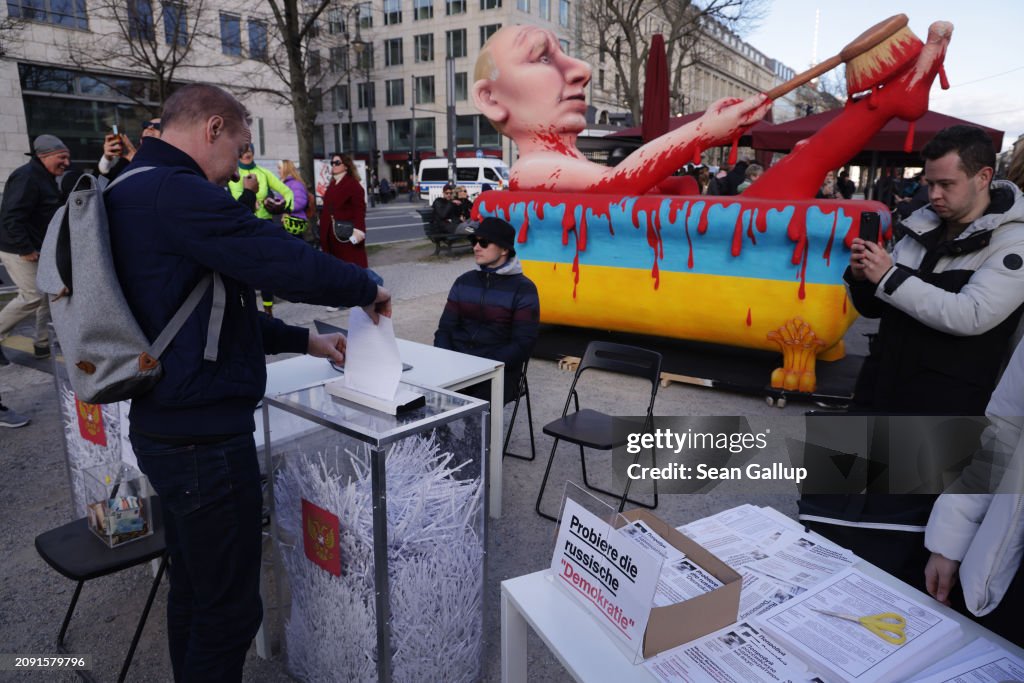
Putin reaffirms his power as the war against Ukraine goes on
The main challenge for the Russian leader is to secure his place at the head of the state. To do so, he presents himself as the savior of Russia since the downfall of the USSR. His regime is characterized by the curtailment of the population’s freedoms and his military operations, especially in Ukraine since February 2023. As the war goes on, protestations within Russia and the world grows. Strengthening his grip on power was therefore crucial for Vladimir Putin. With this electoral victory, he intends to present Russia as a strong and united country, ready to win the war. In his post-election speech, Vladimir Putin said that “no one can scare Russia” in reference to the French president’s comments on the possibility of sending French troops to Ukraine.
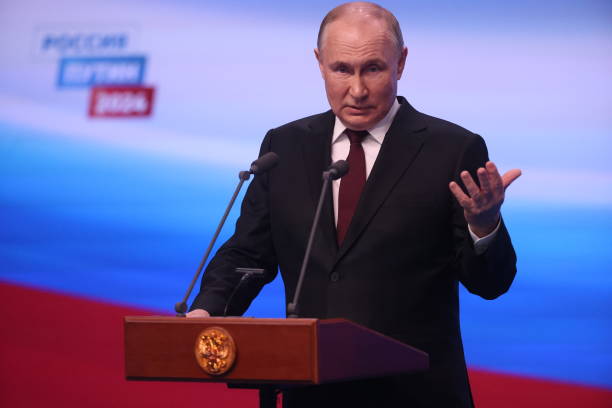
To watch Vladimir Putin’s post election speech: https://www.youtube.com/watch?v=GbWgrXZ4Hxw.
How did people show their opposition
In Russia, freedom of speech is superficial: public demonstrations are brutally repressed. Every opponent to the regime is sent to prison or mysteriously dies. However, the opposition did call on voters to gather at polling stations at noon and to write any names other than Putin’s on the ballot. Loulia Navalnaïa even called on people to write the name of her late husband and first opponent to the Russian leader, Alexeï Navalny. After the death of her husband on the last 16th of February 2024 in highly suspicious circumstances, she promised to continue his fight against Putin’s authoritarian regime. The eyes of the world are now on Russia and its leader more than ever before, as international tensions grow following the elections and its potential consequences.


